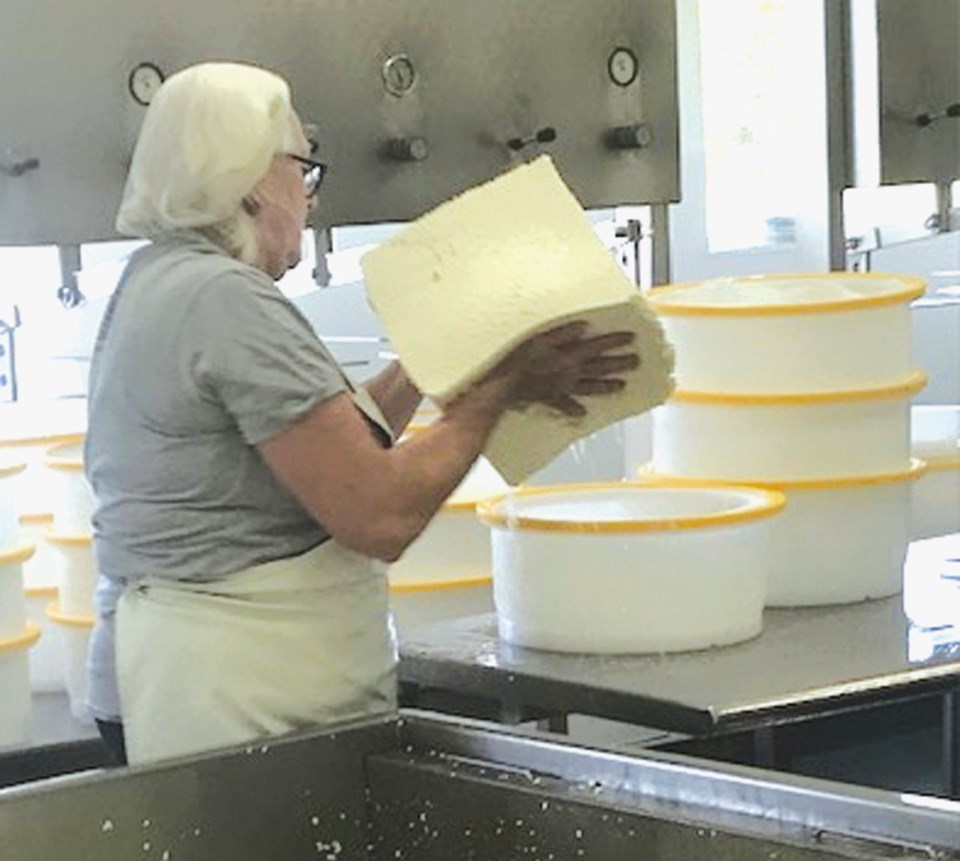THUNDER BAY, ONT. — It’s the jewel of Neebing, but you could argue it’s a gem for the world as well.
Thunder Oak Cheese Farm has been around for over a quarter century and 50 per cent of its gouda cheese products are shipped out, including to the four corners of the world.
It’s no wonder their store is home to international clientele. Just last week, the cheese farm had folks in from South Africa and Bangladesh. And on Monday, the business opened their doors to a couple from Texas out for a stroll on their motorcycles.
Thunder Oak proprietor/cheesemaker Walter Schep, who took over ownership of the family business in 2008, feels their products are popular because people are quite conscious these days about what they put in their bodies.
“I think we lucked out when my parents (Jacob and Margaret Schep) started it,” said their son Walter, whose brother Martin handles the dairy farm operations.
“Started it at the right time when these on-farm operations were just becoming a little more popular. People were more interested where their food was coming from. Not just go to the grocery store and grab whatever, they were a little more curious where their food actually came from. We’ve just been able to build with that over the years.
“We only use milk from our own farm. The only thing we put in there is culture, rennet and milk, which makes a pure product.”
It’s all about curds and whey, but the process to make cheese is much more complicated than the Mother Goose poem Little Miss Muffet.
The day starts between 7-7:30 a.m. when the milk arrives and is unloaded into a bulk tank, followed by a pasteurization. The milk is then sent to a holding tank where culture and rennet (curds and whey) are added.
The mixture sits for 20 minutes, has the knives put to it to cut the curds into manageable pieces, drained of one-third of the whey where hot water washes the curds and makes them more firm.
When the curds are firm enough, 12-kilogram pieces are placed in molds where they are pressed for four hours before being soaked in the brine pit for 48 hours to preserve the cheese at around 4:30 p.m. each day.
The cheese is put on shelves for aging and eventually waxed to make the finished product.
Despite COVID-19, that maze of intricate operations continued throughout the past two-plus years of the pandemic.
“(COVID-19) was like anything else, it was tricky,” said Schep, whose farm churns out 450 kilograms of cheese from 4,000 litres of milk every day.
“You had to navigate every time (the government) came out with another announcement, everything slowed down for a bit. We were kind of lucky, we process food and people need to eat. We came out quite well actually and can’t complain at all. We didn’t have to shut down or anything.
“We were able to keep going. I was able to keep all my employees going.”
Approximately 25 restaurants in Thunder Bay, that were able to provide takeout during COVID-19 and currently have little to no pandemic restrictions, use the award-winning Thunder Oak products as do most grocery stores in Thunder Bay.
Besides their popular gouda cheeses that encompass 13 flavours, the Dutch family farm also sells imported products from The Netherlands including candy, cookies, spices, tea towels and ceramics.
For more on the cheese farm and its cheese-making process, visit cheesefarm.ca.
The Chronicle Journal
